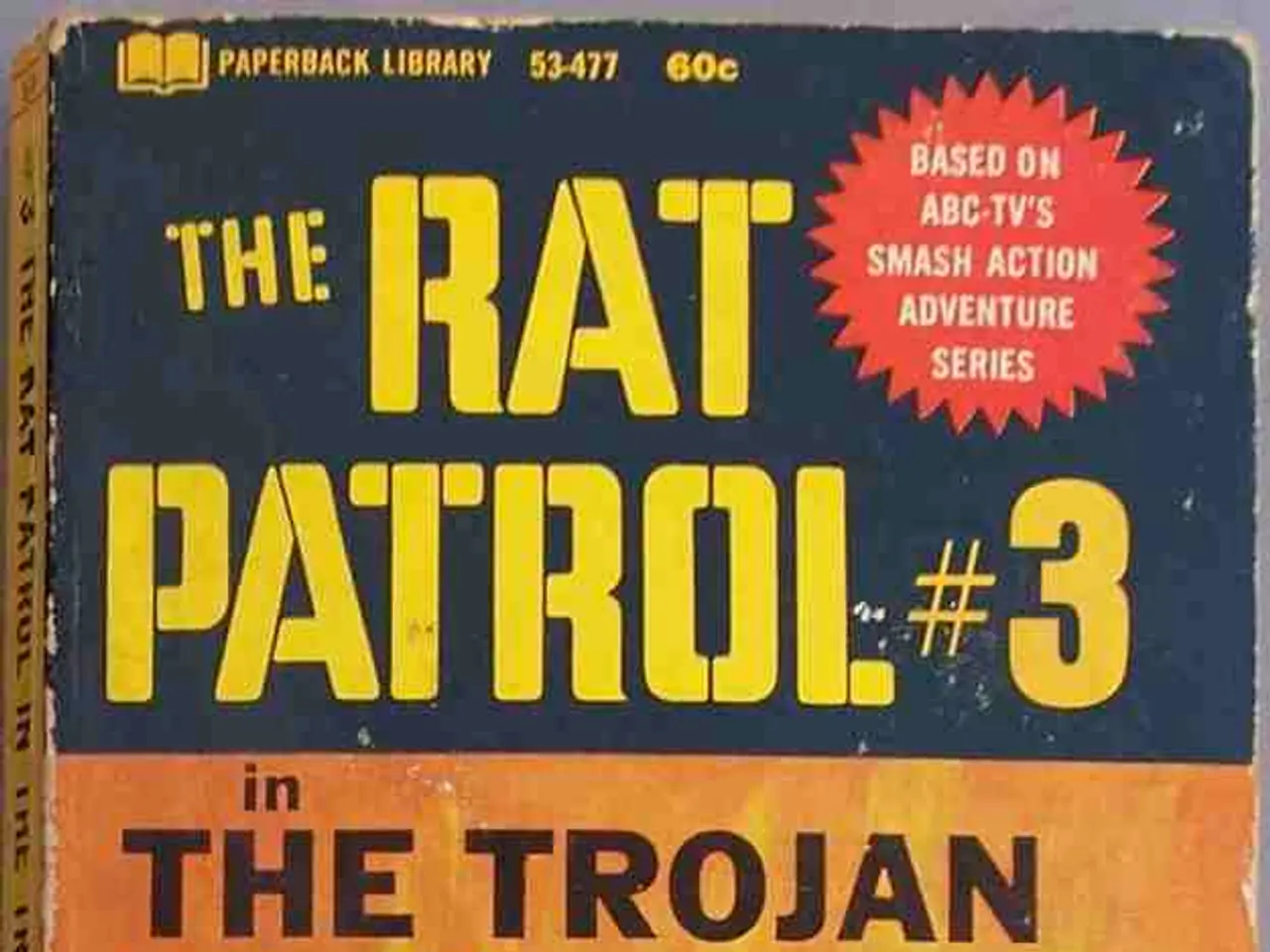The Threat of Nuclear Iran: A Comparison to the Iraq WMD Debacle
Trump Emulates Netanyahu's Strategy, Disregarding U.S. Intelligence Findings
Welcome to the latest unveiling about the potential nuclear ambitions of Iran! In today's world of geopolitical chess matches, the question on everyone's mind is, "How close is Iran to possessing an atomic bomb?" The answers are as confusing as ever, with Trump's sudden changes of tune reminding many of another painful chapter in history - the Iraq War debacle. Let's delve into the facts and scrutinize the situation.
The Parallel Fictions of Weapons of Mass Destruction
Just like before the Iraq War in 2003, the reasons behind a potential US intervention in the Israeli-Iranian conflict are shrouded in controversy. However, there are clear contradictions that have resurfaced: between the assessments of US intelligence agencies and those of the Israeli government, and the flip-flopping statements of President Trump.
Do you remember the anthrax vial Colin Powell waved before the United Nations Security Council before the Iraq invasion in 2003? It was all part of a dramatic presentation aiming to convince the world that Iraq possessed and produced weapons of mass destruction. Fast-forward to 2021, and we find ourselves staring down the barrel of another nuclear threat, with Trump demanding "unconditional surrender" from Iran. Is Trump making the Iran War an Iraq 2.0?
Netanyahu and the Heat from Fox
According to Israeli Prime Minister Benjamin Netanyahu, Israel had no choice but to act. If Iran is not stopped, it could produce an atomic weapon "in a very short time." "It could be a year. It could be a few months," said Netanyahu. In an interview with Trump's favorite channel, Fox News, he claimed that Israel shared vital information with the United States exposing Iran's secret plan to make uranium into weapons.
However, US intelligence agencies have a completely different story. They believe that Iran halted its nuclear weapons program in 2003, shortly after the US invasion of neighboring Iraq - presumably to avoid becoming a target itself. Even in light of new intelligence from Israel, the US intelligence community maintains that Iran continues to research nuclear weapons but has not made significant progress in developing actual weapons.
The US Intelligence Community's Reservations
The US intelligence services are far from convinced that Iran is on the verge of obtaining an atomic bomb. In March 2021, Trump's intelligence director, Tulsi Gabbard, testified in the intelligence committee of the US Senate that her services "continue to believe that Iran is not building nuclear weapons and that the Supreme Leader Khamenei has not approved the nuclear weapons program that was stopped in 2003."
This assessment remains unchanged, as the new information from Israel only demonstrates that Iran continues to work on nuclear research. While it's true that Iran's abilities have improved in the last few months, the US and Israel agree that Iran is still at least three years away from being able to build and deploy an atomic bomb.
The International Atomic Energy Agency's Warning
However, this doesn't mean that Iran's nuclear activities are completely harmless. In June 2021, the International Atomic Energy Agency (IAEA) issued a stern warning that Iran had violated its nuclear non-proliferation obligations for the first time in almost twenty years. Despite its claims of a peaceful nuclear program, Iran is secretly working on enriching uranium to levels dangerous enough to create a nuclear weapon.
Trump's Confusing Signals
Trump, however, seems to have a different take on the situation. On numerous occasions, he has made conflicting statements about negotiations and attacks. One moment, he opposes Israeli attacks on Iran; the next, he claims that diplomatic solutions are a suitable course of action. Then again, he openly demands Iran's "unconditional surrender" and ponders the prospect of US intervention.
It's unclear what exactly influences Trump's thinking. Is he basing his decisions on the Israeli intelligence information presented to him, or is he stirring up tensions to pave the way for Israeli-Iranian war? One thing is for sure - Israel is desperate for US support and weaponry to attack Iran's well-protected nuclear facilities. Without the US military might, an Israeli attack on these underground bunkers may not yield positive results.
politics
Netanyahu's Ploy for US Entry into War and Trump's Paradoxical Actions
For months, Netanyahu has been pressuring Trump to support an attack on Iran. In May 2021, US authorities reportedly warned the Israeli prime minister to refrain from taking any unilateral action against Iran. Despite these warnings, Netanyahu appears to persist in his efforts. On June 9, following a phone call with Trump, the president was reported to have said, "I think we might have to help him."
It remains uncertain if and when the US will enter the conflict. However, recent developments suggest that a US-Iranian war is growing increasingly likely within the next few days. As we all learnt from the misleading claims about Iraq's WMDs, history has a way of repeating itself. The question now is whether this time, we are facing a true and imminent threat or another manipulative ploy to lead us down a disastrous path.
Just remember that, once again, the usual suspects are not reliable sources for accurate assessments of the situation. Netanyahu may have ulterior motives, such as distracting from the highly controversial war in the Gaza Strip, and Trump's thoughts and actions might continue to change up until the very last moment. One thing is clear - a war between Iran and the US would have severe consequences for world peace.
References
- "Tulsi Gabbard: Iran Is Not Building Nuclear Weapons." Senate Intelligence Committee, February 6, 2021. https://www.councilont error.org/2021/02/tulsi-gabbard-iran-is-not-building-nuclear-weapo ns/
- "IAEA Verifies Iran's Reduction of Enriched Uranium Stockpile." International Atomic Energy Agency, February 21, 2021. https://www.iaea.org/newscenter/pressreleases/iaea-verifies-irans-reduction-of-enriched-uranium-stockpile
- "IAEA says Iran is enriching uranium to 60% purity, well above level needed for most reactors." Associated Press, June 20, 2021. https://apnews.com/article/fe722ef132be459290b1387f1a5eedb2
- "Israel hits Iranian targets in Syria with aircraft." Al Jazeera, May 10, 2021. https://www.aljazeera.com/news/2021/5/10/israel-hits-iranian-targets-in-syria-with-aircraft
- "Iran's Nuclear Deal: Why U.S. Withdrew." Council on Foreign Relations, October 6, 2020. https://www.cfr.org/backgrounder/irans-nuclear-deal-why-us-withdrew
- The discussions surrounding Iran's potential nuclear capabilities bear striking resemblances to the debate preceding the Iraq War, raising concerns about the reliability of certain political figures and their motivations.
- In the midst of international tension, the politics of war-and-conflicts continue to unfold, with the United States finding itself in a precarious position, as questions about its involvement in a potential war with Iran persistently arise.





